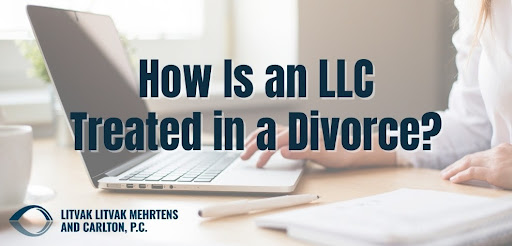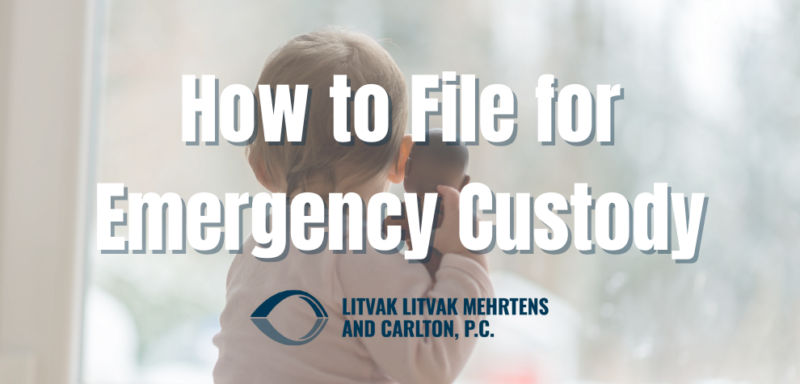Child custody orders in any state are binding legal orders that both parents must abide by at all times. In several situations, special circumstances arise that prompt modifications to a child custody order. For example, one parent may need to move to a different state. In this case, it’s important to understand child custody jurisdiction rules and regulations. To determine how to change jurisdiction for child custody, speak with a qualified family law attorney in Denver.
At Litvak Litvak Mehrtens and Carlton, we understand that a child custody order might not always fit perfectly with the life changes you undergo. That’s why we offer experienced legal advice to those looking to change their child custody order or child custody jurisdiction. If you’re a custodial parent seeking to change the initial custody order, we’re here to help. To arrange a consultation with us, please call 303-951-4506 or fill out our online intake form today to speak with a qualified child relocation lawyer in Denver.
Moving Out of State With Children
Even if your divorce is finalized, it’s imperative to receive court approval before attempting to relocate with your children. Colorado emphasizes the importance of both parents participating in the lives of their children. However, when the custodial parent needs to move for some reason, this complicates the relationship between the child and the noncustodial parent.
You may have valid reasons for relocating to another state. A new and improved job may have been offered to you, or your present employer may be moving to a different state, and if you don’t relocate with them, you will lose your job. Despite why you want to relocate to another state, the court will consider how important your cause is and how it will affect your children.
To relocate with your children to a different state, you must first submit a petition for relocation. You’ll have to show the court enough proof that this move is in your children’s best interests. Your former spouse will be given the option to object to this decision.
Domesticating the New Order
You should ask the court in your new jurisdiction to domesticate the order if your plea to migrate with your children is allowed. This implies that your new state recognizes your former state’s divorce and child custody orders.
It’s highly important to take this step if you want to enforce the new order. Let’s say the other parent isn’t paying child support ordered by the court. You’ll want to enforce the child support order in your new state of residence. If by this time, you haven’t domesticated the order, you won’t have proper standing with which to bring the order to the court.
It’s not exactly easy to relocate to another state with a child, especially with an existing custody order. However, there are certain circumstances in which relocation benefits both the parent and their children. The state’s court puts a lot of thought into your reasons for moving before approving the move.
The court often seeks to protect the personal relationships between parents and children, but if the custodial parent is aiming to provide the children with a safer living environment, it may be in the best interest of the children to move. A state court will likely approve your request to move if you provide sufficient evidence to support relocation and a change to existing child custody arrangements.
Do I Have to Notify the Other Parent if I Want to Relocate?
The parent who is relocating must tell the other parent in advance of the move. Written notice must be issued to the other parent through registered or certified mail with return receipt required, or sent by a professional messenger. The following information must be included in the notice.
- Custodial parent’s current mailing address
- Specific physical address of the predetermined new residence
- New mailing address if it is different from the physical address
- Phone numbers of the relocating parent
- Date of the anticipated relocation
- Brief statement disclosing the reasons for the move
- Proposal of a new visitation schedule
- Statement that the noncustodial parent has the right to object by way of certified mail within 30 days of receiving the notice of relocation
- Suggestion that the noncustodial parent seek legal advice regarding the situation
Can Visitation With Another Parent Be Restructured?
A consideration in favor of permitting the relocation is the court’s belief that a fair reorganization of visitation may protect and develop a good connection between the kid and the non-custodial parent. More visiting time may be provided throughout the summer months and during school vacation times if visitation is restructured. In rare cases, the kid may wind up spending more time with the non-custodial parent than the initial arrangement stipulated. To make the visits easier, the court may lower child support. Some courts impose travel expenses on the relocating parent.
If a custodial parent takes the kid without notifying the other parent, they may lose custody of the child. They might even be charged with abduction. The non-custodial parent must be notified of any imminent move before it may be considered.
Based on both parents’ planned locations, an attempt should be made to develop a mutually agreeable parenting arrangement. Long-term custody cases are notoriously tough to resolve. The intervention of the court may be both costly and time consuming.
When the non-custodial parent relocates, the custodial parent may be forced to depend on the Revised Uniform Reciprocal Enforcement of Support Act to enforce or assure child support payments. This Act establishes the procedures for a support order made in one state to be implemented in another state’s courts.
How Does the Court Decide to Allow Relocation with Children?
Each state has different rules addressing a parent’s ability to migrate out of state with their child. If the non-custodial parent opposes, several states may limit the custodial parent’s rights. In certain circumstances, the main problem will be how the parenting plan should be altered to suit the distance between the parents, rather than whether the relocation would be authorized. Despite the fact that each state’s laws vary, the following are some of the major elements that the court will consider.
- Reasons for relocation
- Amount of time the children spend with the noncustodial parent currently and after the relocation
- The physical, educational, and emotional effect on the children from the move
- Effect on visitation rights
- Whether or not the relocation would improve the quality of life of the parent and children
The court considers a number of variables while deciding whether or not to allow a minor child to be relocated. The reasons for relocating, the reasons for opposing the relocation, and the parties’ connection are the most essential considerations. If one parent wishes to relocate, the other parent must be notified well in advance of the move. The deadlines are set down in each state’s statutes.
How to Change or Modify a Custody Order
According to C.R.S. 14-10-131, parental responsibility for making crucial decisions for their children can be modified. The best interests of the children are the primary consideration when modifying legal custody rules. Based on a number of variables, Colorado’s legislation determines what their best interests are.
Custody can also be modified in Colorado if one parent has relinquished their decision-making authority. In some cases, the other parent has either dropped out of the scene or allowed their ex-spouse to make the arrangements for a long period.
You can submit a petition or motion to change custody after the court acknowledges the reason for your child custody adjustment. Look for the “Forms” tab on the Colorado Judicial Branch’s website. All of the forms are in PDF and Word format. You may either fill them out online and print them, or you can print them first and then write on them. The case will reopen when you file for a modification, and the procedures will be similar to the initial child custody process.
What Is the Uniform Child Custody Jurisdiction and Enforcement Act?
The Uniform Child Custody Jurisdiction and Enforcement Act (UCCJA) has been implemented in almost every state and the District of Columbia. It establishes standards for courts to make custody decisions as well as standards for when a court must rescind to an established determination made in another state. Only Massachusetts, out of the 50 states, does not now observe the UCCJA.
How to Determine a Child’s Home State
In general, jurisdiction in a child custody case lies in the child’s home state, or the state where the child has lived for six months prior to filing an action. Parents seeking custody of the child must also live in the state in which they file the action for 6 months prior to filing. If, for some reason, the child has not lived in any one state for 6 months, the court must determine whether or not the child and one parent have strong connections to one state. If so, they can determine where jurisdiction lies.
Finding a significant connection to one state involves more than simply looking at where the child and parent currently live. Sometimes, neither the child nor the parent has a particularly strong connection with one state over another. In this case, the court looks for any form of connection to a state.
What Happens if You Actually Relocate?
Relocation is a typical occurrence, especially in professions such as the military or for those who work for national or global companies with offices all over the country. Many individuals believe that if they relocate to another state, their child’s custody jurisdiction will also travel with them. This, however, is a misconception, and it is critical to comprehend the true situation. Speak with a trusted attorney about how to change jurisdiction for child custody before making any big decisions.
Speak With a Colorado Child Custody Attorney Today
Any child custody issue can be both legally and emotionally tough. When the parents live in different states, custody battles may be much more difficult to conclude. States collaborate under the UCCJA to combat child abduction and other challenges. If you and the other parent of the children are unable to come to an agreement, you may require legal assistance.
Contact our Denver child custody attorneys now if you have any questions regarding interstate custody arrangements or need assistance with any custody difficulties. To arrange a consultation, please call 303-951-4506 or fill out our online intake form.






